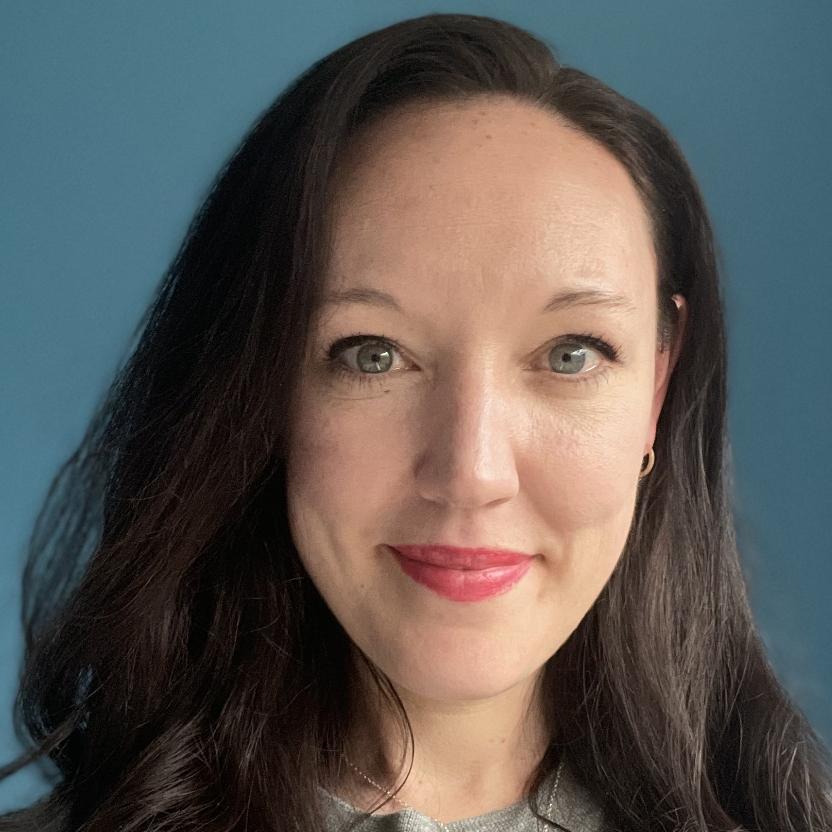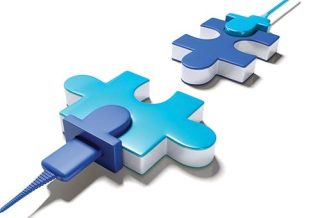FOCUS
Coaching empowers teachers to lead for equity
By Courtney Smith
Categories: Coaching, Equity, Improvement science/networksApril 2023
“So where are we taking the team next?” I asked the three teacher leaders in my weekly coaching meeting at a large middle school in Brooklyn, New York. In addition to their roles teaching science, English learners, and English language arts, these dedicated educators were fellows in an improvement network. They committed to learn together and then lead their peers in a cross-content grade team through an equity-centered continuous improvement process to better meet the needs of historically marginalized students.
In a more traditional instructional coaching model at times employed in our district, New York City Public Schools, the role of a coach would be to prepare for and lead the team meetings, talk through next steps, and visit classrooms to offer encouragement and feedback on teacher practice. Instead, my coaching focused most deeply on building fellows’ leadership capacity. At this weekly fellows meeting, I coached and supported them to facilitate the team meetings and build buy-in with their own teams of their peers.
This type of coaching occurs as part of the NYC Continuous Learning Multilingual Learner Network, which is composed of 33 New York City middle schools working together to strengthen support and outcomes for Black and Latinx multilingual learners who experience the impact of poverty.
Leveraging the tools of improvement science, these schools work with coaches to dig into the root causes of problems, explore student data through an equity lens, and run rapid plan-do-study-act (PDSA) cycles across classrooms. Throughout the year, fellows come together to share their learning, successes, and stumbling points with one another to accelerate learning and impact for our focus students.
Network coaches, hired from district offices to support the network schools, are dedicated full time to building and strengthening relationships with participating fellows, school leaders, and team members, with a focus on building fellows’ capacity to be leaders for equity in their schools. By supporting them to grow their ability and confidence to lead — and not just participate in — equity-centered improvement work, the coaching structure amplifies the schools’ ability to disrupt inequities for Black and Latinx multilingual learners.
The results are encouraging. For example, in the 2020 school year, multilingual learner students whose teachers participated in the network improved over four times more than their multilingual peers on the New York State English as a Second Language Achievement Test.
There’s a ripple effect when coaches support teachers in leading equity-centered improvement work, amplifying a school’s ability to disrupt inequities for Black and Latinx multilingual learners. #TheLearningPro Share on XA dedicated, flexible approach to coaching
To support the growth of equity-centered teacher leadership, network coaches are committed to the following structures and principles.
Set the scene with professional learning. Each year, all fellows in the network engage in a tailored professional learning series to meet their individual needs. In their first year, new fellows (two per school) move through an introductory series, Improvement Science Foundations, through which they learn about and practice with the tools of improvement science.
During this series, fellows come together across school sites to center on the “why” of the network’s focus on strengthening support for Black and Latinx multilingual students who have been historically underserved. They also reflect on connections between the network’s shared “why” and their own “why” as educators.
Here, new fellows work with improvement science tools for the first time. They apply the tools to a fictional problem of practice in a fictional school because this creates freedom and space to learn about the tools themselves before applying them to the complex systems of their own multifaceted school communities.
Graduating from the series, fellows co-lead a team of their peers through applying the improvement science tools to a school-defined problem of practice on better meeting the needs of their Black and Latinx multilingual students, with their network coach’s support.
In their second and third years, veteran fellows engage in a three-part series, the Leadership Institute, focused on supporting them in growing their equity-centered leadership capacities. Here, fellows explore the four “I’s” of oppression (internalized, interpersonal, institutional, and ideological oppression) as described by Darnisa Amante-Jackson (Brooks, 2022), founder of the Disruptive Equity Education Project, and how they live out in their students’ and their own experiences in schools. Fellows also use a leadership self-assessment tool to ground and deepen their equity-centered leadership skill sets.
Prioritize coaching time with teacher leaders. Meeting with the fellows regularly is key to supporting their development as reflective equity-centered practitioners. During these meetings, coaches and fellows celebrate successes, explore adaptive challenges that have arisen (or are on the horizon in the next phase of improvement work), and action plan together.
Calendars get crazy, school life is hectic, and fire drills happen, but coaches and fellows work together to hold this time sacred. They commit to being flexible to make it happen, whether it’s during the school day in a prep period or before or after school so they can reflect on the last whole team meeting, plan their upcoming work with their teacher teams, and tackle challenges and growth areas together.
Deepen relationships and reflection with a flexible coaching scope and sequence. The coaching structure relies on a foundation of trust between teacher leaders and coaches. To help foster a trusting space of transparency, vulnerability, and risk-taking, the network uses a flexible coaching scope and sequence that prioritizes relationship-building and mutual reflection in the first two months of the year.
Coaches and fellows engage in personal reflections on their own experiences in school (as students and as teachers) through the lens of racial and linguistic equity before using the formal tools of continuous improvement. They take time to get to know one another and share values, experiences, and where each person is on their equity journey.
As fellows learn more about their coaches’ and their own experiences, coaches capture invaluable data and insights on their experiences, strengths, and expertise. This relationship building helps get everyone ready to dive into the deep and sometimes challenging elements of equity-centered improvement work together. As one network coach said, “I think that the relationship building that we did, and the more explicit conversations that we tried to have, and activities that we had around exploring our own biases … set me, as a coach, and my teams up better to be having that kind of reflective stance throughout the year.”
Gradually release responsibility to teacher leaders. Network coaches’ goal is to “coach ourselves out of a job.” Coaches move from co-leaders of the team’s student-centered improvement work to thought partners to cheerleaders as fellows increasingly drive the work. While coaches often take the lead on planning the fellows-only weekly coaching meeting in the first few months of network participation, coaches make strategic decisions around when and how to share the coaching scope and sequence with fellows, engaging them as co-pilots and eventually independent leaders of the work.
With veteran fellows, coaches often start the year by walking through the coaching scope and sequence and engaging fellows in a reflective planning process: What parts of the yearlong sequence do they anticipate might be challenging? What parts do they think they’ll shine in? How can their coach support them in each of these areas? Coaches dig deep to identify areas for fellows to continue to grow and tailor ways to support them in furthering their independent leadership.
As an example of how this gradual release works, during a September coaching meeting of a team’s third year in the network, I asked three veteran fellows what things I had done in the previous year that supported the teacher team in making a difference for our Black and Latinx multilingual students.
They reflected and shared that they especially valued the “equity pause” that I often brought into the meeting — a question peppered into the team activities to slow us down and reflect on where and how our work or language was either disrupting or reinforcing the status quo for our students. They found this kept us all centered and moving in the right direction.
I thanked them for their reflection and then told them that I would no longer be leading the equity pauses during team meetings. Instead, they would practice using this structure themselves, with my support. We would use our coaching time together to plan for how they could lead the equity pauses, practice, and unpack how it went. The fellows were nervous, but we talked through why this transition was important for their long-term work with their own teams, how I would gradually release this responsibility to them, and how they could signal when they needed extra support.
Strengthen the skills of teacher leaders, build their capacity, and gradually release responsibility until they are the ones driving the improvement work. #TheLearningPro #ProfessionalLearning Share on XCelebrate and encourage teacher leaders’ creativity and expertise. Just as we encourage our students to bring their experiences, cultures, languages, and gifts to the classroom, we must create spaces for teacher leaders to bring their own flavor to their leadership and take risks.
Our network believes that teacher leaders are creative powerhouses. They are constantly finding ways to engage students, make content exciting and relevant, differentiate support, and create inclusive and joyful classrooms. Coaches celebrate these skills and invite fellows to put their own twist on their leadership. We don’t want to get stuck in believing there is a single way to lead equity-centered improvement work. In fact, it is this kind of false binary thinking that keeps the inequitable status quo in place across our systems.
By building and holding spaces where teacher leaders are encouraged to bring their full, creative, and multifaceted selves to the work, coaches help foster experiences for educators that model the kind of inclusive, transparent, and joyful collaboration that we want our Black and Latinx multilingual learners to experience in the classroom each day.
The coaching model in action
What does this coaching approach look like in action? Here’s an example of how coaches’ work with fellows builds their capacity to support their teacher teams to move toward more equitable practices.
During a fellows’ coaching meeting, three fellows and I reviewed the team’s work to date and how they could go deeper in their equity practices. As we talked about how things were going, I noticed that the fellows’ comments about students seemed deficit-focused. I posed a question to guide our reflection: Are we talking about problems with what students can do or what adults can do?
The fellows started examining the possible causes they had articulated for why our target students were not yet performing to their potential, then stopped. They recognized that the statements were almost all about students — what students could and couldn’t do, or what they needed. We talked through that observation and whether it aligned with our commitment to putting the onus of change on us as educators, not on students and families. We decided that it didn’t.
Rather than scrapping our first draft, we revised it. Each fellow took a single statement from our draft of possible causes and reframed it from using student deficit language to centering on adults and the challenges we might face in fully meeting our students’ needs. Statements such as “multilingual students need more processing time” became “teachers are unsure how to structure protocols for think time in a meaningful way.”
Next, I invited the fellows to think about how they would facilitate this conversation with their teams, and I asked how they wanted their teams and themselves to feel. “Like we’re in this together and like this isn’t hopeless — that we can make a difference for our students,” one experienced fellow said. Setting that as our north star, we talked through facilitation moves and practiced how to introduce the reframing activity.
We built an agenda for how the fellows would lead the full teacher team through reflection and revision. Just as our coaching team had intended, fellows assumed leadership. One fellow offered to model how to shift from writing about “them” to writing about “us” and share her reflection on how she felt when seeing the new version. Another offered to facilitate our team meeting “energizer” activity.
But the fellows decided they weren’t ready to lead this activity independently with their teams, so we planned for me to join them virtually. That way, I’d be able to listen in on the team meeting and have a better understanding of how the team was engaging in the activities, but they would be in charge. The fellows planned to use the chat feature with me, popping in their questions in real time for support (and cheerleading) from me.
The fellows left this planning meeting with a completed agenda, reflective forethinking on where adaptive challenges might arise and how they could leverage their strengths to navigate them, and an understanding of where and how they could get support. They were well on their way to the kind of leadership their schools needed them to take for equity-centered improvement.
Building a system of equity-centered leaders
Making adaptive change in the interest of equity is complex. It can’t happen from the outside in because it requires a deep and ongoing commitment among the educators doing the work with students every day. But support to build that knowledge and capacity among school-based staff is essential, and coaching can play a powerful role.
As one fellow put it: “The equity piece of our work wasn’t fully connecting for me yet. I wasn’t sure how to apply it to our cycles. It’s such a big term, and it’s so important. Now I see how the pieces fit together. We’re not just talking about it, we’re working together to make equity happen.” In this way, the NYC Continuous Learning Multilingual Learner Network is helping to transform learning not just for individual students but for schools and the system as a whole.
Download pdf here.
References
Brooks, J. (Host). (2022, March 21). Soft on people, hard on systems with Dr. Darnisa Amante-Jackson [Audio podcast episode]. In Unstoppable Together podcast. Booz Allen Hamilton. bit.ly/3YjfKiA

Courtney Smith (courtney.o.smith@gmail.com) is the former deputy executive director and founding member of the New York City Public Schools continuous learning team.
Categories: Coaching, Equity, Improvement science/networks
Recent Issues
WHERE TECHNOLOGY CAN TAKE US
April 2024
Technology is both a topic and a tool for professional learning. This...
EVALUATING PROFESSIONAL LEARNING
February 2024
How do you know your professional learning is working? This issue digs...
TAKING THE NEXT STEP
December 2023
Professional learning can open up new roles and challenges and help...
REACHING ALL LEARNERS
October 2023
Both special education and general education teachers need support to help...










